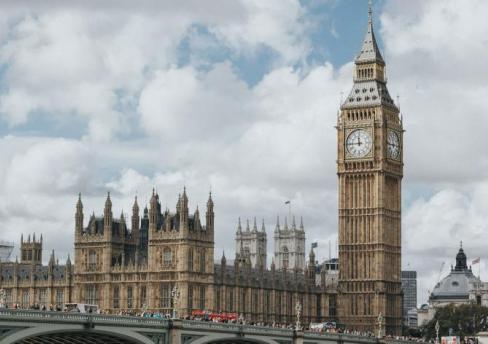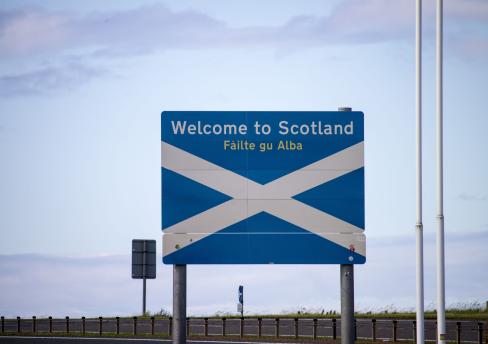The judgment is out from the Supreme Court. Who could have predicted that the word "prorogation" would trip off the tongue of the citizen in the street?
The judgment on this complex and novel area of constitutional law is all the more powerful in that it was, unexpectedly, a unanimous judgment of all 11 justices. The judgment said that the Prime Minister, Boris Johnson, acted unlawfully when he advised Her Majesty to prorogue Parliament for a period of 5 weeks:
"because it had the effect of frustrating or preventing the ability of Parliament to carry out its constitutional function without reasonable justification".
The effect of the judgment is that, as a result of this fundamental unlawfulness, everything that followed on from that advice was as if it had never happened. The practical effect was that Parliament had not in law been prorogued and our MPs will be back at work today, occupying the green benches again because it never happened. However the implications of the judgment, even if, as clearly stated by the Court, it was "not about when and on what terms the UK is to leave the EU" will have ramifications for the UK constitution and our understanding of the separation of powers, which underpins our unwritten constitution, for years to come. Commentators have been apologising for using words such as "extraordinary" and "momentous" to describe the judgment but then justify themselves by pointing out how important the judgment is and will be for constitutional relationships. They are correct.
The Court asked itself four questions. Firstly, the question as to whether the lawfulness of the Prime Minister's advice to Her Majesty to prorogue Parliament was a matter which was justiciable and could be reviewed by the Court. Secondly, against what standard was the question of lawfulness to be judged. Thirdly, applying that standard, was the Prime Minister's advice lawful. Fourthly, if the advice was unlawful what remedy should the Court grant.
This is a succinct and clear judgment extending to only 24 pages. It follows on from the conflicting appeals from the High Court in England and Wales and the Inner House of the Court of Session in Scotland. Arguments were put on behalf of the UK Government that the question of prorogation of Parliament and the exercise of the prerogative powers to achieve prorogation was a purely political matter and it was not for the Court to intervene in that political judgment by a Prime Minister. The Court disagreed with that argument. It said:
"…the courts have exercised a supervisory jurisdiction over the decisions of the executive for centuries"
The justices also said:
"The fact that the minister is politically accountable to Parliament does not mean that he is therefore immune from political accountability to the courts".
Having determined what standards should be applied and looking at constitutional principles and case law, they stated:
"For the purposes of the present case, therefore, the relevant limit upon the power to prorogue can be expressed in this way: that a decision to prorogue Parliament (or to advise the monarch to prorogue Parliament) will be unlawful if the prorogation has the effect of frustrating or preventing, without reasonable justification, the ability of Parliament to carry out its constitutional functions as a legislature and as the body responsible for the supervision of the executive. In such a situation, the court will intervene if the effect is sufficiently serious to justify such an exceptional course……
It is impossible for us to conclude, on the evidence which has been put before us, that there was any reason - let alone a good reason - to advise Her Majesty to prorogue Parliament for 5 weeks, from 9th or 12th September until 14th October. We cannot speculate, in the absence of further evidence, upon what such reasons might have been. It follows that the decision was unlawful."
This led to a decision that the remedy granted was to declare that the advice of the Prime Minister to Her Majesty was "null and of no effect". It followed that the formal process in the House of Lords to prorogue Parliament was as if the Royal Commissioners appointed to carry this out, in the Court's now memorable phrase, "had walked into Parliament with a blank piece of paper". No legal argument that this process was "proceedings in Parliament" and out with the Court's ambit saved the prorogation.
The judgment has been followed by calls from politicians across the political opposition and others for resignations by everyone who had a role in the prorogation and also questioning the role of the monarchy. Those calls seems to reflect a lack of understanding of the constitutional roles of those involved as opposed to political reality.
Firstly, none of the parties have suggested that Her Majesty had any discretion other than to accept the advice from her Prime Minister to prorogue Parliament and to follow that up with the Order in Council and the appointment of Royal Commissioners. Had Her Majesty not accepted her Prime Minster's advice on this matter, then that would have raised huge constitutional red flags.
The Attorney General is now being challenged to produce his legal advice on which the Prime Minister allegedly relied in deciding to prorogue Parliament. Normally Law Officers advice remains confidential to the Government. However a recent precedent was set when the Attorney General produced his advice on how the then Prime Minister's amendments to the Brexit agreement impacted on concerns around the effect of the Irish backstop arrangements. He may be forced to make a further disclosure of his legal advice. However is this a resigning issue?
He stated today that the advice was given in good faith. Until his advice is seen and the nature of the exact question he was being asked to address, it is difficult to look beyond his statement, but equally there is no reason to cast doubt on that statement. While the Supreme Court reached a unanimous judgment, in advance this was not perceived to be an obvious and clear cut issue and raised difficult and untried constitutional questions. Different decisions had been reached on the same issue of justiciability in the senior courts of England and Wales and separately in Scotland. It will be a matter for the Attorney General if he decides to consider his position, but it seems wrong to suggest he must do so because he has "lost" a case in court, particularly such a complex case as this one. If that were correct there would be very few litigators left practicing in the courts of the UK whose advice had later been found to be wrong .
There have also been calls for the resignation of the Prime Minister's adviser, Dominic Cummings. Again, while Mr Cummings may or may not be considering his position, his role is to provide advice to Mr Johnson which, unlike in the case of Her Majesty, the Prime Minister may or may not choose to accept. His continued employment should therefore be a matter for the confidence in and judgment of his employer, the Prime Minister.
Finally there have been calls for the resignation of the Prime Minister himself. He took the decision and gave the unlawful advice to Her Majesty. It is important to bear in mind that the Court did not say that the Prime Minster misled Her Majesty, nor did they consider or look at his motives as the Court of Session did. However even without considering his motives this is seen as a damming judgment of the Prime Minister's conduct in the matter of the prorogation. In normal times this would be a resigning matter, but we are way past "normal times" in Brexit world. We await the anticipated political fallout from the judgment now that Parliament has resumed and then we will see whether it makes any difference to Brexit and whether the UK will leave the EU on 31 October. Any brave person willing to predict? Probably not…..
The content of this webpage is for information only and is not intended to be construed as legal advice and should not be treated as a substitute for specific advice. Morton Fraser LLP accepts no responsibility for the content of any third party website to which this webpage refers. Morton Fraser LLP is authorised and regulated by the Financial Conduct Authority.










